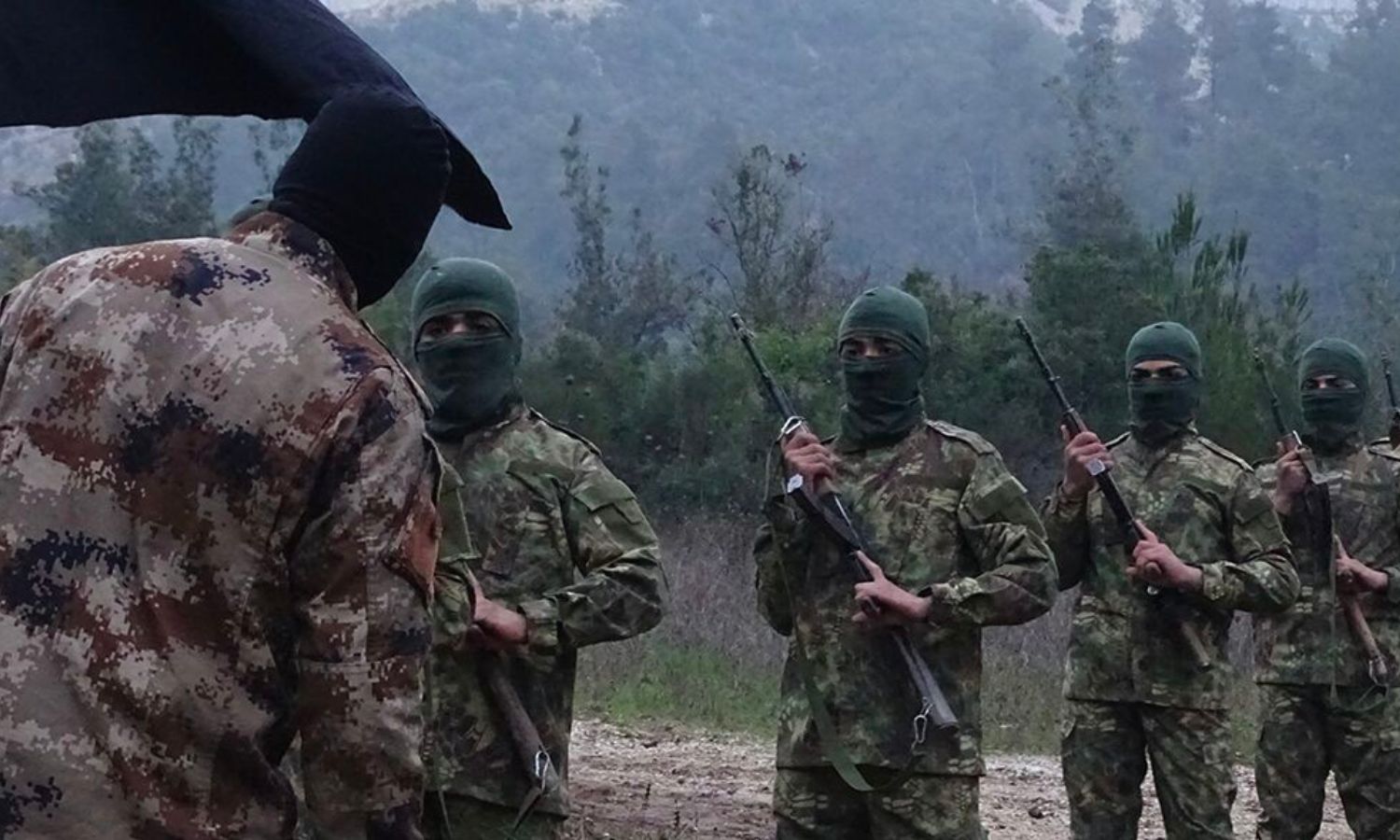



The names of the leaders of the Guardians of Religion (Huras al-Din) Organization had disappeared for two years from the statements of the US-led International Coalition until US Central Command (CENTCOM) announced the killing of commander “Abu Abdul Rahman al-Makki” by a drone strike south of Idlib on August 23.
The previous targeting of one of the leaders of the Guardians of Religion Organization, the Syrian branch of al-Qaeda, occurred on June 27, 2022.
At that time, the US stated it had killed leader “Abu Hamza al-Yemeni,” but local sources mentioned that the target was “Abu Hazza al-Deiri,” a leader in the Guardians of Religion Organization originally from the village of Hariji in northern Deir Ezzor countryside.
Since 2020, the Guardians of Religion Organization has suffered successive blows, with Hayat Tahrir al-Sham (HTS) pursuing its elements and leaders on the ground, along with American precision missile strikes from the air, leading to a decline in its strength and presence, especially over the past two years.
According to researcher in religious movements Dr. Abdul Rahman al-Haj, it can be said that the organization is “exhausted and is in a very weak state,” yet it still exists and poses a threat.
Al-Haj told Enab Baladi that the likelihood of the organization returning to activity and rebuilding itself remains, besides being a refuge for opponents of Abu Mohammad al-Jolani, the leader of Hayat Tahrir al-Sham.
Hayat Tahrir al-Sham first emerged under the name “Jabhat al-Nusra” and was al-Qaeda’s branch in Syria, but after announcing its split from al-Qaeda in 2016 and taking a different path than many of its leaders and sharia officials, elements and leaders who later formed the Guardians of Religion Organization left its ranks.
The conflict between the two parties escalated during the first half of 2020 when Tahrir al-Sham pursued and arrested elements and leaders of the Guardians of Religion and other “jihadist” groups aligned with the Guardians of Religion Organization in the Stand Firm Operations Room.
In June 2020, clashes erupted between Tahrir al-Sham and the Stand Firm Operations Room, resulting in casualties on both sides.
It ended at that time with an agreement stipulating that no checkpoints would be set up or any military action launched against regime forces without coordination with the Al-Fath al-Mubeen Operations Room, which includes Tahrir al-Sham, the National Liberation Front, and Jaysh al-Izza, responsible for military operations in the region.
Al-Haj explained that the Guardians of Religion Organization operates secretly and relies on the al-Qaeda jihadi network for funding and recruitment, which extends beyond borders, giving it support and capabilities unavailable to any other party, ensuring its survival.
This makes “eliminating it difficult, especially with the absence of a stable central authority, but exhausting it is possible by eliminating its leaders, which is what al-Jolani seems to be doing,” according to al-Haj.
Additionally, the Guardians of Religion Organization cannot move to other Syrian regions, as there is no suitable environment for it in areas controlled by the Syrian National Army (SNA) in the Aleppo countryside, nor in areas controlled by the Syrian Democratic Forces (SDF). Its presence in the south is also limited, and it is an opponent of the Islamic State organization.
All of this limits its geographical scope for activity in Syria, according to al-Haj.
Currently, the organization does not control any land or specific area and largely uses small arms and light weapons like AK-47 rifles, mortars, and rocket-propelled grenades in its raids on Syrian regime positions.
The United States claimed responsibility for targeting “Abu Abdul Rahman al-Makki” and killing him south of Idlib, pointing out that he was a member of the Shura Council of the Guardians of Religion Organization and a senior leader responsible for overseeing terrorist operations from Syria.
Al-Makki had previously served as a military commander in the Jund al-Malahem faction during 2016 and 2017, before the faction announced its name change to the Guardians of Religion Organization.
Al-Makki had been imprisoned by Hayat Tahrir al-Sham since June 2020, and jihadists and clerics had called for his release, but Tahrir al-Sham did not respond, stating in a previous statement to Enab Baladi that he was “dangerous.” He was then released in April 2022 without an official announcement, with the news limited to secondary and affiliated media.
During 2020 and 2021, six leaders of the Guardians of Religion Organization were killed after being targeted by precise missiles dropped by American aircraft.
if you think the article contain wrong information or you have additional details Send Correction